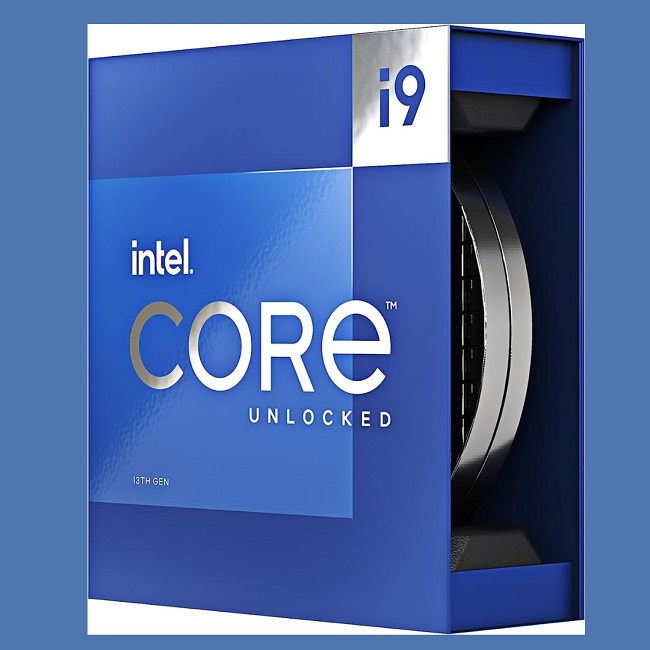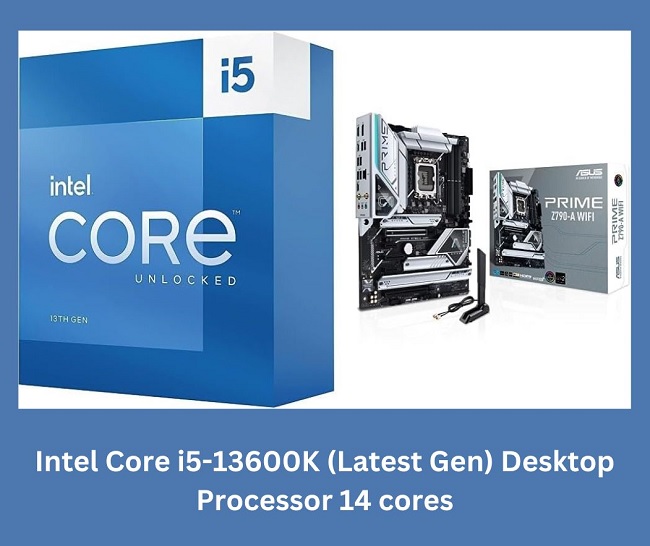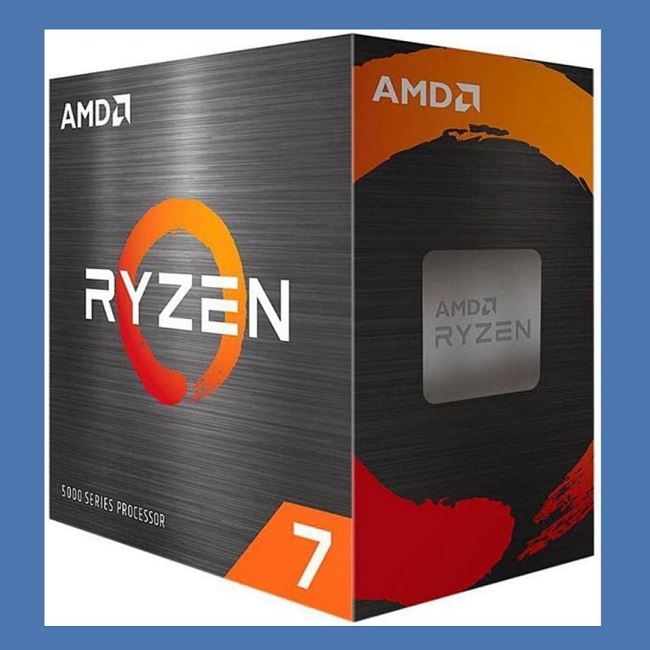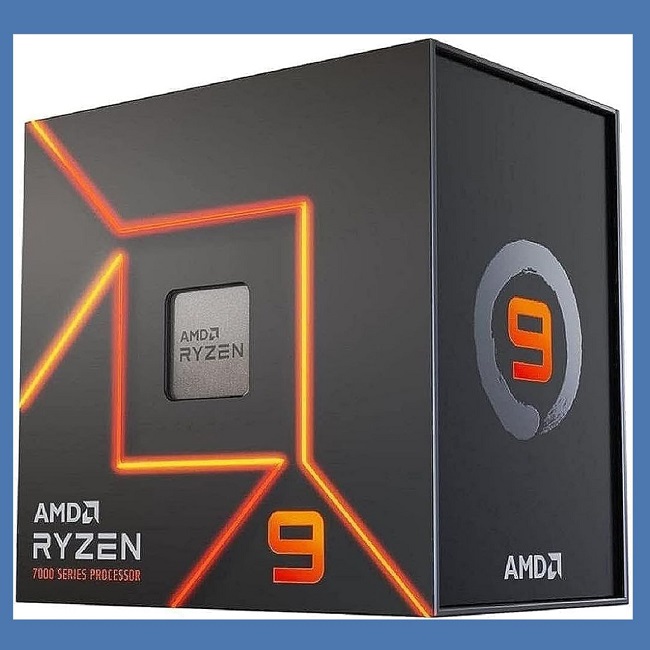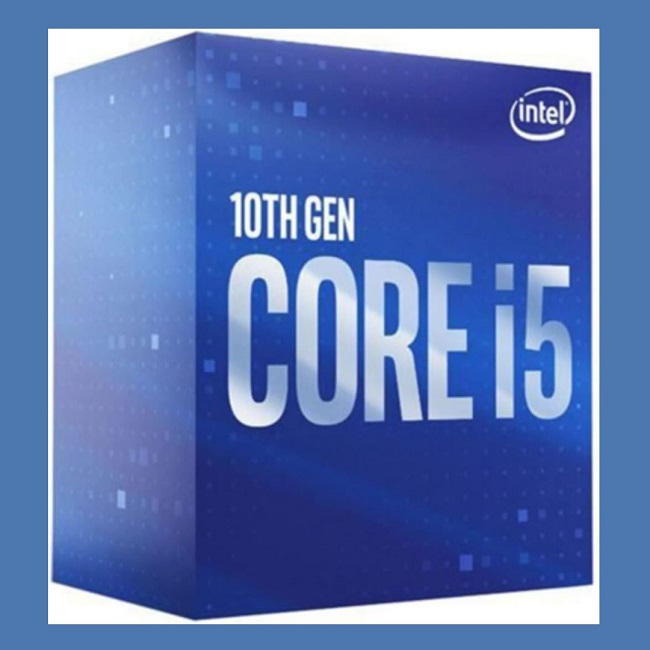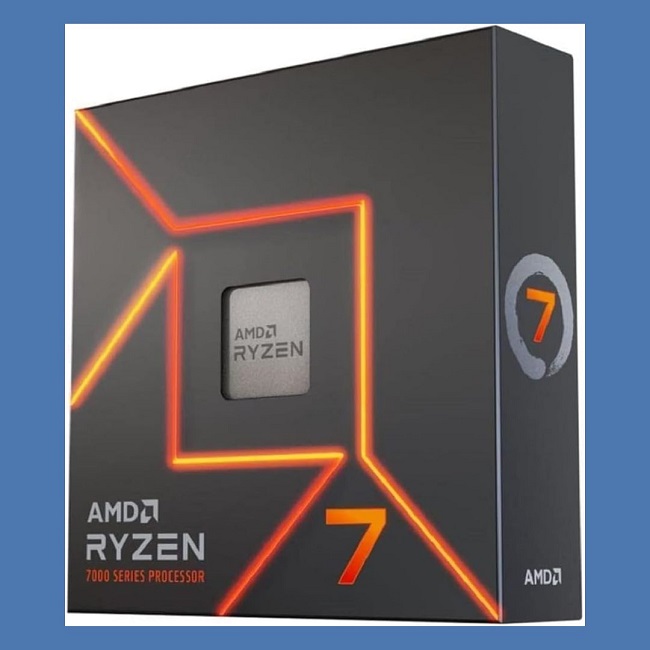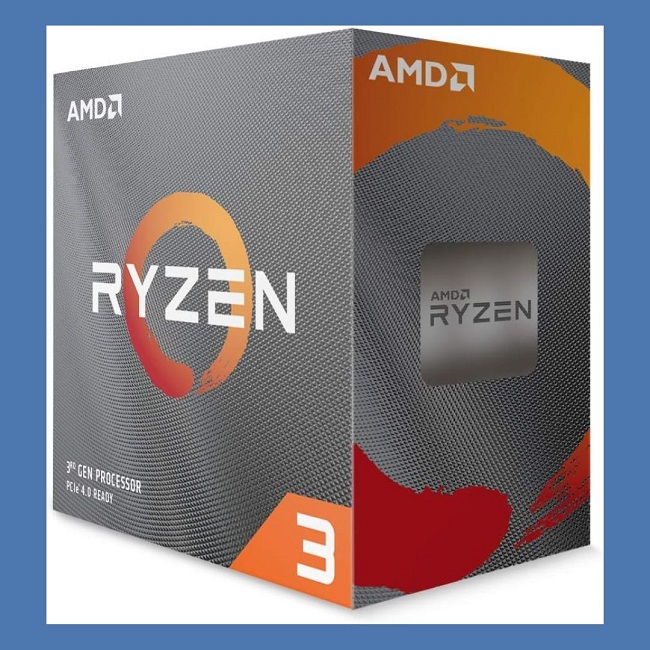7 Best CPU For Music Production 2025: Buying Tips
Last Updated on 2 months by Touhid
Nowadays, music production heavily relies on a good CPU; regular CPUs might not give you the best results. So, it is important to have a highly configured and best CPU for music production.
A good CPU for music producers must have things like high clock speed and faster rendering times. Now, finding the best CPUs can be confusing due to the huge array of choices available on the market.
Hence, to help you make an easier decision, we are here to help you find the best CPU based on your requirements and budget.
Our computer expert team also has reviewed and tested the best hard drive photographers, the best gaming computer under 1000 USD, and the best HP Pavilion gaming computer. So you can learn more.
Table of Contents
Best CPUs For Music Production: Things To Look For
What a gamer might look for in a CPU can never be the same as what a music producer will look for in a CPU. Thus, before deciding on the product, you must know the features of the best CPU for music production.
Clock Speed
One of the most important factors to look at is the clock speed of the processor. Because heavy programs require a lot of computing power, faster CPU clock rates are often beneficial for music-creation software. A CPU with a base clock speed between 2.5 GHz and 3.0 GHz can often handle basic music production activities with efficiency.
CPU Cache
Due to its effective data and instruction storage, the CPU cache is essential to the creation of music. It speeds up repetitive processes in your Digital Audio Workstation (DAW), which has a substantial influence on efficiency.
The speed and efficiency of music production operations are eventually improved by the CPU’s ability to quickly access frequently used data with a bigger cache size.
Number of Cores
The number of cores is another important factor in the best processor for music production. It can multitask because each core functions as an independent CPU. Multi-core processors, which can perform numerous tasks at once, are generally advantageous for software that produces music.
A minimum of 2.4 GHz and 4 cores is ideal for music creation. The price of a multicore computer may be substantially more, but the turbo performance will be improved.
Power Consumption
There isn’t a set limit on power consumption in a CPU used for music creation, although a 45W to 95W TDP (thermal design power) CPU might be a decent place to start.
A lower TDP (45–65 W) is appropriate for quieter studios as it results in increased energy efficiency and less heat. Although they can handle more demanding jobs and have faster performance, CPUs with 65W to 95W TDP also produce more heat and use more electricity.
7 Best CPU for Music Production 2025
The market is full of different CPU choices for music production, but not every CPU can handle this task properly. Hence, to make your choice easier, we have put down a list of the 7 best CPUs for music production 2025 out there for you to choose from.
1. Best Music Production CPU: Intel Core i9
The first processor on our list is the Intel Core i9-13900K, which is the best CPU for music production. By the name you can already understand, it is a powerful, heavy-duty processor that comes with 24 cores.
With eight P-cores and sixteen E-cores, the Intel Core i9-13900K is a powerful CPU. Its multi-core design could be a game-changer for music creation, particularly when managing several tracks, intricate effects, and running multiple plugins at once.
This CPU performed exceptionally well on a single core. Real-life audio sessions were a joy to use the Core i9-13900k in because most DAWs just use one core and don’t use multi-core technology.
Furthermore, the large number of cores and strong single-core performance offer plenty of processing capacity, making activities like real-time audio processing and rendering easy to complete.
With a 3.0 GHz base frequency clock speed that can be increased to 5.8 GHz, you should have more than enough power to operate any number of digital instruments and recordings as you need.
Additionally, the i9-13900K’s unlocked nature permits overclocking for increased performance.
Key Features
- Comes with 24 cores; 8 Primary cores and 16 E cores.
- Includes integrated graphics.
- Has a top speed of 5.8 GHz.
- Compatible with Intel 600 series.
- 125 Watt TDP.
Pros
- Long-lasting and doesn’t require any updates.
- You can overclock with the unlocked option to get more performance.
- Among the quickest processors available today.
- Comes with integrated graphics so that you may use it for standard video editing as well.
Cons
- It can become way too hot if a proper cooling system is not used.
Final Verdict
If you have a high budget and you want the best performance out of your CPU for music production, then look no further than the Intel Core i9-13900k. Its 24 cores make sure you never run out of processing power for multitasking and have the best efficiency.
2. Best Intel processor for Music production: Intel Core i5
The next CPU on your list is the Intel Core i5-13600K which comes with 14 cores and integrated graphics. It is a perfect balance between price and performance.
One of the newest generation’s Intel Core i5-13600 K provides a powerful setup for music creation. Its 14 cores (6 Performance and 8 Efficient) have excellent multitasking capabilities, making it perfect for managing many programmes at once. So, this is the best Intel processor for music production.
Even while using a DAW programme might strain some processors to the maximum, most tracks can be produced with this Intel Core i5-13600.
This combo can effectively utilize the features of the processor when teamed with the ASUS Prime Z790-A WiFi 6E motherboard.
Dependable connectivity and seamless operation are ensured by the motherboard’s features and compatibility, including support for WiFi 6E, which is essential for online collaboration and music creation.
Moreover, it supports DDR4 and DDR5 RAM, so as a professional, you may utilize this processor for music creation with your old system without experiencing any problems.
It has speeds up to 5.1 GHz, 3.5 GHz frequency, 24 MB CPU cache, and 20 processor threads, are capable to doing the music production without any problem.
Key Features
- Powered by 14 cores and 20 threads.
- 125 Watt TDP.
- Includes an ASUS Prime Z790-A WiFi 6E LGA 1700.
- It has a speed up to 5.1 GHz unlocked.
- Specifically designed for Windows 11 and Intel Core CPUs from generations 13 and 12
Pros
- It provides a combo with a great motherboard.
- The processor provides impressive performance under budget.
- Enhances audio processing.
- Can support both DDR4 and DDR5
Cons
- Doesn’t come with a cooler.
Final Verdict
For those seeking reliable performance and the best processor for music production at an affordable price, the Core i5-13600K is an excellent option for music production. It looks like a wise choice to combine it with the ASUS Prime Z790-A WiFi 6E for music creation because it offers a decent mix of performance and affordability.
3. Best Budget CPU for Music production: AMD Ryzen 7
This is the best budget CPU for music production in 2025. Although the AMD Ryzen 7 5700G is primarily designed for gamers, it also functions incredibly well for general-purpose computing and music creation. AMD’s lightning-fast Ryzen 7 5700G is an eight-core, massively parallel workhorse CPU with integrated graphics.
AMD’s first 7nm ‘Cezanne’ Zen 3 APUs for desktop PCs are here with the eight-core, sixteen-thread Ryzen 7 5700G. Its 8 cores and 16 threads provide strong multitasking capabilities, which guarantee fluid performance while managing several tracks, effects, and plugins in digital audio workstations (DAWs).
The addition of an integrated graphics card is also an added advantage; even though it is not essential for music production, it can give you access to work with videos without needing to spend extra money.
Furthermore, AMD’s cores are faster than conventional 14nm CPUs thanks to TSMC’s highly efficient 7nm technology, making it a powerful CPU for demanding computing jobs.
One of the best features of this processor is the inclusion of a wraith stealth cooler which cools down the system when it gets too hot while working on extreme projects.
Key Features
- Comes with 8 Cores and 16 processing threads.
- Includes AMD Wraith Stealth cooler.
- Has a 4.6 GHz max boost unlocked.
- Integrated with Radeon graphics.
- TDP of 65 Watts
Pros
- Comes with a cooler to cool down the system.
- Faster than regular 14nm CPUs
- Less heating due to lower power consumption
- Has overclocking capability for better performance.
Cons
- Doesn’t support DDR5 for overclocking.
Final Verdict
If you are not ready to spend a very high amount of money but still want the best CPU for music production like Intel, then the AMD Ryzen 7-5700G is a good choice. It is faster than traditional 14nm CPUs and works at low power, which reduces heat in the system.
4. Best AMD CPU for Music production: AMD Ryzen 9 6-Core
With 16 cores and 32 threads, the AMD Ryzen 9 7950X is the best in itself. It has a lot of processing power that makes it ideal for demanding music production tasks.
The 7950X 16-core processor is among the fastest line of processors of AMD Ryzen 9. It has 16 cores and a basic clock speed of 4.5 GHz with an overclocking capability of 5.70 GHz.
Additionally, music producers looking for high-end performance without going over budget may find AMD’s architecture. It is the best AMD CPU for music production because it frequently offers exceptional value for its capabilities.
Its large core count makes it a great option for high-end music creation since it enables effective management of several tracks, significant plugin usage, and real-time audio processing.
Even if your power supply is running low due to voltage drop, you can still expect a high performance by going into Ryzen Master and lowering the frequency and voltage and still have everything operate to a satisfactory degree.
Furthermore, it is incredibly power-efficient with a 170-watt power consumption, particularly when compared to other premium CPUs.
Key features
- Optimal processing outcomes with increased usability are provided by 5 nm process technology.
- Comes with 16 cores to handle multitasking efficiently.
- Excellent hit rate and quick access time are delivered by the 16 MB L2 and 64 MB L3 cache memory.
- Offers a 4.5 GHz clock speed.
- TPD of 170 Watt.
Pros
- Ample processing capacity is available for sophisticated music productions thanks to its 16 cores and 32 threads.
- Mixes multi-core capabilities with powerful single-core efficiency.
- A genuine performance-based value for the money.
- Delivers gratifying performance at low voltage.
Cons
- The system may overheat as a result of the high TDP.
Final Verdict
The AMD Ryzen 9-7950X could be an excellent option if you enjoy AMD and want one of their fastest processors for music generation. The 16 cores and 32 threads provide more than enough power to meet all your music production needs.
5. Cheap Music Production CPU: Intel Comet Core i5
If you don’t like AMD Ryzen 3 and are looking for an alternative around the same range, then the Intel Comet Lake Core i5-10400 is the best cheap music production CPU.
For work related to music creation, the desktop Intel Comet Lake Core i5-10400 processor running at 2.90GHz with a 12MB cache is a dependable option.
This CPU has six cores and twelve threads, allowing for respectable multitasking even with its slower base clock speed.
It can quickly access frequently used data thanks to its substantial 12-MB cache, which is useful when working with big music files or intricate project layouts.
Although the basic clock may appear slower than some of the other options, it’s possible to ramp up to faster speeds when needed thanks to the Turbo Boost function.
So, it can reach a maximum turbo frequency of 4.3 GHz using Intel Turbo Boost 2.0. As a result, multitasking can be done easily without much trouble.
The Intel Core i5-10400 is a powerful and efficient processor that generates music within a suitable thermal design power (TDP). No doubt, this will be the best music production processor because it uses less energy while producing high-quality sounds.
Key Features
- Comes with 6 cores and 12 threads.
- 65 Watts of TDP.
- Up to 4.3 GHz of clock speed with Intel turbo boost.
- Has 12 MB of cache memory.
- Includes 16 PCIe 3.0 lanes.
Pros
- It comes with prebuilt cooling system.
- It provides high performance considering the price.
- This CPU comes at a very reasonable price.
- Low power consumption.
Cons
- Not suitable for heavy-duty music production.
Final verdict
If you are a beginner in music production or intersected, then the Intel Core i5-10400 is the best option. It offers a reasonable price and provides decent performance with good multitasking and integration capabilities.
6. Best AMD Processor for music production: AMD Ryzen 7
The AMD Ryzen 7 7700X is a very appealing option and the best AMD processor for music production for those who enjoy producing music. It is powerful at multitasking thanks to its 8 cores and 16 threads.
This AMD Ryzen 7-7700X’s compatibility with both DDR4 and DDR5 RAM, depending on the motherboard, is one of its most alluring features. It allows for quick data access, which is essential for managing big audio files and extensive sample libraries.
Having several cores is beneficial for music creation since it allows for the seamless processing of numerous tracks, effects, and plugins at once without causing lag.
Moreover, the Ryzen 7 7700X’s architecture—especially its potent single-core performance—contributes to the seamless real-time audio processing that is essential for reducing latency when filming or performing live.
Furthermore, even though the basic performance is already remarkable, its unlocked nature allows for overclocking potential to squeeze out extra performance if necessary.
Key Features
- Includes 8 cores and 16 threads.
- Has an 80 MB cache with DDR5-5200 support.
- Boosts a 5.40 GHz overclocking speed.
- TDP of 105 Watts.
- It can support PCIe 5.0 on some motherboards from the 600 Series.
Pros
- It can work with most of the modern-day motherboard chipsets.
- It supports very fast data transfer speeds.
- Can deliver 100+ FPS for gamers.
- The processor remains cool and quiet even under heavy load.
Cons
- Doesn’t come with a cooler.
Final Verdict
It’s a good option for music producers because of its compatibility with modern technologies, overclocking capability, and capacity to perform complicated tasks within DAWs.
A smooth and productive workflow is ensured by the combination of core count and clock speeds, which makes the Ryzen 7 7700X a notable option for anyone looking for a strong yet affordable solution for their music production needs.
7. Powerful CPU for Music: AMD Ryzen 3 4-Core
Even if it is a little older, the AMD Ryzen 3 3300X is still a reliable and best CPU for creating music in 2025. With four cores and eight threads, it has sufficient power for respectable performance.
Its Zen2 design makes it one of the most affordable CPUs for making music. Even at two years old, its quad-core configuration is capable of handling activities involving music. With a frequency range of 3.8GHz to 4.3GHz boost clock, it performs well in less demanding music production tasks.
Its low 65W TDP guarantees effective power use and cool operation during regular music duties, which is outstanding. Additionally, being on the AM4 socket makes it upgradeable.
Key Features
- 18MB cache
- Boosts up to 4.3 GHz.
- 4 cores and 8 threads.
- 65 Watts TDP.
- Supports AM4 platform.
Pros
- Comes with a cooler to reduce overheating.
- 65 watts of low power consumption.
- Affordably priced.
- Generally, handles music production well.
Cons
- The technology is a bit older.
Final Verdict
The AMD Ryzen 3 3300X, although an older model, is still powerful enough for light music production. This is a dependable option if you’re just getting started with music production and require a powerful CPU within a certain price range.
Best Processor for Music Production 2025: Buying Guide
With the help of this buying guide, you can find the best CPU for music production between your budget and performance.
Thermal Durability
More stress is placed on processors as they grow in power, which produces greater heat. This can have an impact on other parts of the system. Thermal stability is vital for professional music producers that use high-performance CPUs.
Even while some CPUs come with coolers, purchasing an AiO (All-in-One) cooler may greatly improve thermal management and guarantee improved performance.
However, if you are just a beginner in this field and you barely work with one or two projects in a week then you need not think too much about heat as it won’t put too much pressure on the processor.
Core and Threads
More cores on a CPU are what you want. This makes it possible to manage many music production activities at once.
Furthermore, multithreading-capable CPUs provide improved multitasking. Therefore, to optimize performance, search for processors that support hyper-threading or simultaneous multithreading (SMT).
If you are an expert and professional music producer, then you need a minimum of 6-8 cores in your CPU; if you can get more than that it is much better. However, if you are just a hobbyist or beginner then a CPU with 4 cores should be sufficient for you.
Upgradability
Doesn’t matter if you are a beginner or a professional, having upgradability options in your CPU is a great advantage. Even if you are a beginner, as you grow experienced in this field your need for a better system will increase.
On the other hand, for professionals, as you start to handle more complex projects the need for the latest technologies will increase, and being able to upgrade your existing system can be beneficial.
Compatibility
Compatibility is another important issue of the best CPU for music production. If you do not wish to change your entire desktop system, then you will need to make sure the CPU you are getting is compatible with your preexisting system.
Thus, ensure that it is compatible with the socket type on your motherboard. The majority of today’s CPUs use sockets like AMD’s AM4 or Intel’s LGA 1200.
Budget
One of the most important considerations is the budget, a CPU with more cores, more clock speed, and coolers will obviously cost more than the normal CPUs.
Now as we have mentioned in our previous points, your final choice will always depend on your preferences. For professional music producers, it is important to invest in a good setup.
But other than that you should be good to go with a moderately priced CPU unless your bread and butter depends on it.
FAQs
After reading our review, you should have a clear idea of which is the best product for you. But if you are still in some confusion, keep on reading our FAQs below.
What processor do I need for music production?
The best processor for music production is the Intel and AMD processors. And you should also consider at least an i5 processor and more for good music production.
Is CPU power really important for music production?
Because it can perform several activities at once, including organizing tracks, processing effects, operating your digital audio workstation (DAW), and handling real-time audio processing, CPU power is essential for the production of music.
When handling complicated projects, many tracks, and other tasks, a strong CPU with multiple cores and threads enables for more seamless operation.
What is the standard recommended GHz for music production?
A larger number indicates that the data is processed by the computer more frequently, which is advantageous. For optimal results, while producing music, 2.2 GHz is the minimum suggested frequency to generate music. However, it is advised that for smooth music creation, you should aim for a minimum of 2.5 to 3.5 GHz.
How much RAM should I get for music production?
Along with a good CPU, you will also need to get enough RAM. Generally, most of the DAW software does not even need more than 3 and 4 GB of RAM. However, to run multiple software and programs together, you will need to get more RAM between 16-32 GB of RAM for uninterrupted operation.
Conclusion
Music no longer only consists of instruments; it needs the usage of complex software to turn it into a complete tune. For this, you need a strong CPU, and not every CPU can handle music production smoothly,
We have reviewed the 7 best CPU for music production 2025 above, and depending on your usage and requirements, you can select the best product for your needs.

